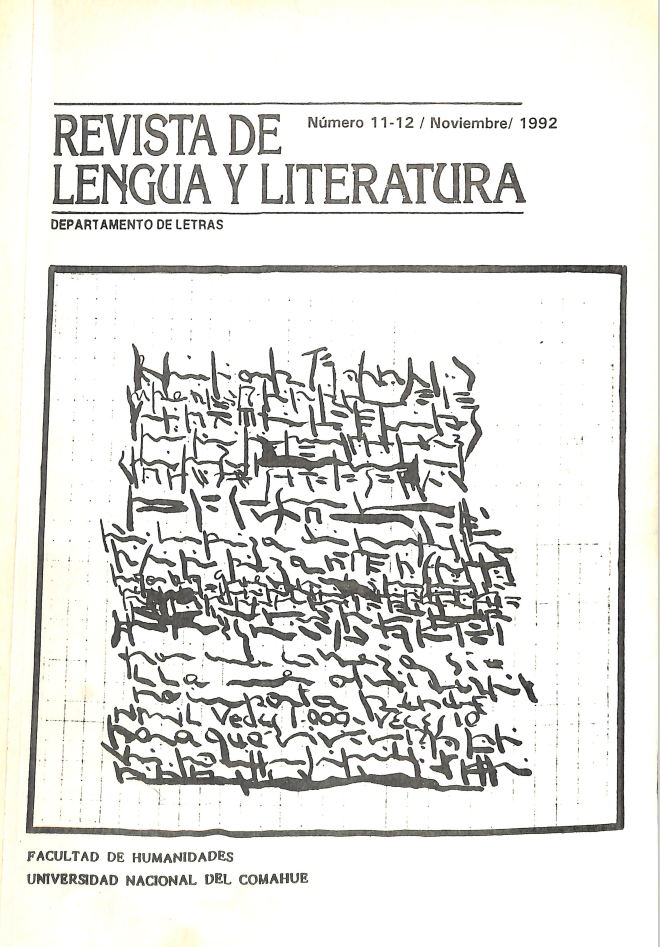Cae la noche tropical, de Manuel Puig
Palabras clave:
Manuel Puig, Melancolia, Ausencias, Diálogo, FemeninoResumen
"Cae la noche tropical" de Manuel Puig, publicada en 1988 y analizada por Alejandra Minelli, cierra el ciclo novelístico del autor, explorando temas como la melancolía, la ausencia y la carencia desde una perspectiva predominantemente femenina. La "noche" es una metáfora central que representa el desamparo, la introspección y la oscuridad existencial, así como el declinar de la vida. La anécdota principal se centra en el último año de vida de dos hermanas octogenarias argentinas, Lucy y Nidia de Angelis, que viven solitariamente en Río de Janeiro, y sus interacciones con Silvia, una vecina psicóloga, y Ronaldo, un joven inmigrante. La novela se divide en doce capítulos, con una evolución desde los diálogos entre las hermanas en los primeros seis capítulos, hacia la predominancia de cartas y documentos escritos en la segunda mitad. Nidia, cuyo nombre se opone al de Lucy (luz), es quien construye el discurso de la historia de Silvia, mientras Lucy busca conocer el relato. Los personajes femeninos procesan la ausencia y la privación a través de relatos de amores, el cine y el dinero. Puig elabora un discurso sentimental sobre el amor, la vejez y la muerte, utilizando la desaparición del narrador y la yuxtaposición de diversas formas escritas para descentrar al lector habitual de novelas sentimentales y reafirmar su universo narrativo.Descargas
Citas
PUIG, Manuel. Cae la noche tropical, Seix Barral, Barcelona, 1988.
BARTHES, Roland. Fragmentos de un discurso amoroso, Siglo XXI Editores, México, 1990.
SARLO, Beatriz. El imperio de los sentimientos, Catálogos, Bs As., 1985.
Descargas
Publicado
Cómo citar
Número
Sección
Licencia
Derechos de autor 2025 Revista de Lengua y LiteraturaLa aceptación de colaboraciones por parte de la revista implica la cesión no exclusiva de los derechos patrimoniales de los autores a favor del editor, quien permite la reutilización bajo Licencia Atribución-NoComercial-SinDerivadas 2.5 Argentina (CC BY-NC-ND 2.5 AR)
Usted es libre de:
Compartir — copiar y redistribuir el material en cualquier medio o formato
La licenciante no puede revocar estas libertades en tanto usted siga los términos de la licencia
Bajo los siguientes términos:
Atribución — Usted debe dar crédito de manera adecuada, brindar un enlace a la licencia, e indicar si se han realizado cambios. Puede hacerlo en cualquier forma razonable, pero no de forma tal que sugiera que usted o su uso tienen el apoyo de la licenciante.
NoComercial — Usted no puede hacer uso del material con propósitos comerciales.
SinDerivadas — Si remezcla, transforma o crea a partir
El simple hecho de cambiar el formato nunca genera una obra derivada, no podrá distribuir el material modificado.
No hay restricciones adicionales — No puede aplicar términos legales ni medidas tecnológicas que restrinjan legalmente a otras a hacer cualquier uso permitido por la licencia.





